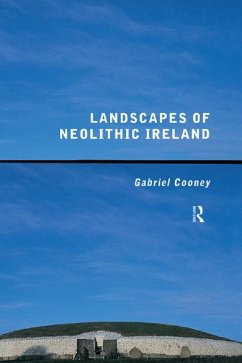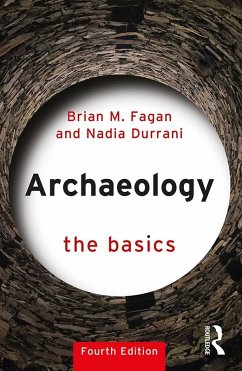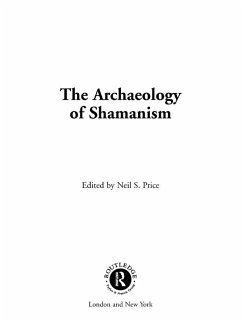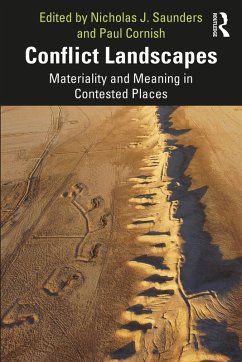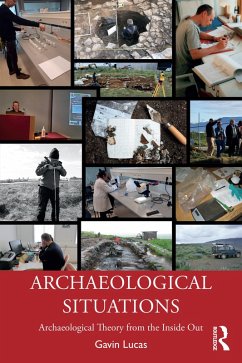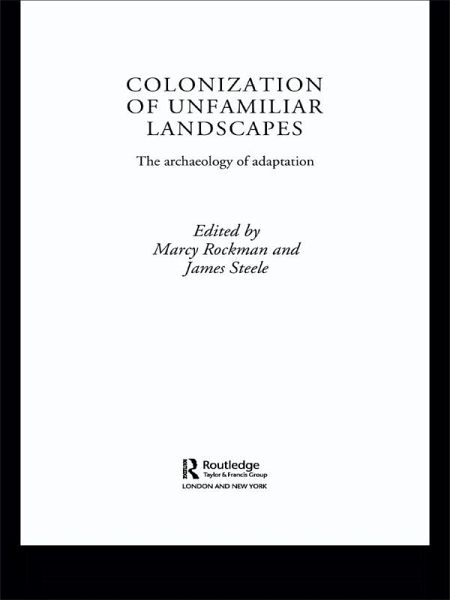
The Colonization of Unfamiliar Landscapes (eBook, ePUB)
The Archaeology of Adaptation
Redaktion: Rockman, Marcy; Steele, James
Versandkostenfrei!
Sofort per Download lieferbar
39,95 €
inkl. MwSt.
Weitere Ausgaben:

PAYBACK Punkte
20 °P sammeln!
This innovative and important volume presents the archaeological and anthropological foundations of the landscape learning process. Contributions apply the related fields of ethnography, cognitive psychology, and historical archaeology to the issues of individual exploration, development of trail systems, folk knowledge, social identity, and the role of the frontier in the growth of the modern world.A series of case studies examines the archaeological evidence for and interpretations of landscape learning from the movement of the first pre-modern humans into Europe, peoplings of the Old and Ne...
This innovative and important volume presents the archaeological and anthropological foundations of the landscape learning process. Contributions apply the related fields of ethnography, cognitive psychology, and historical archaeology to the issues of individual exploration, development of trail systems, folk knowledge, social identity, and the role of the frontier in the growth of the modern world.
A series of case studies examines the archaeological evidence for and interpretations of landscape learning from the movement of the first pre-modern humans into Europe, peoplings of the Old and New World at the end of the Ice Age, and colonization of the Pacific, to the English colonists at Jamestown.
The final chapters summarize the implications of the landscape learning idea for our understanding of human history and set out a framework for future research.
A series of case studies examines the archaeological evidence for and interpretations of landscape learning from the movement of the first pre-modern humans into Europe, peoplings of the Old and New World at the end of the Ice Age, and colonization of the Pacific, to the English colonists at Jamestown.
The final chapters summarize the implications of the landscape learning idea for our understanding of human history and set out a framework for future research.
Dieser Download kann aus rechtlichen Gründen nur mit Rechnungsadresse in A, B, BG, CY, CZ, D, DK, EW, E, FIN, F, GR, HR, H, IRL, I, LT, L, LR, M, NL, PL, P, R, S, SLO, SK ausgeliefert werden.






